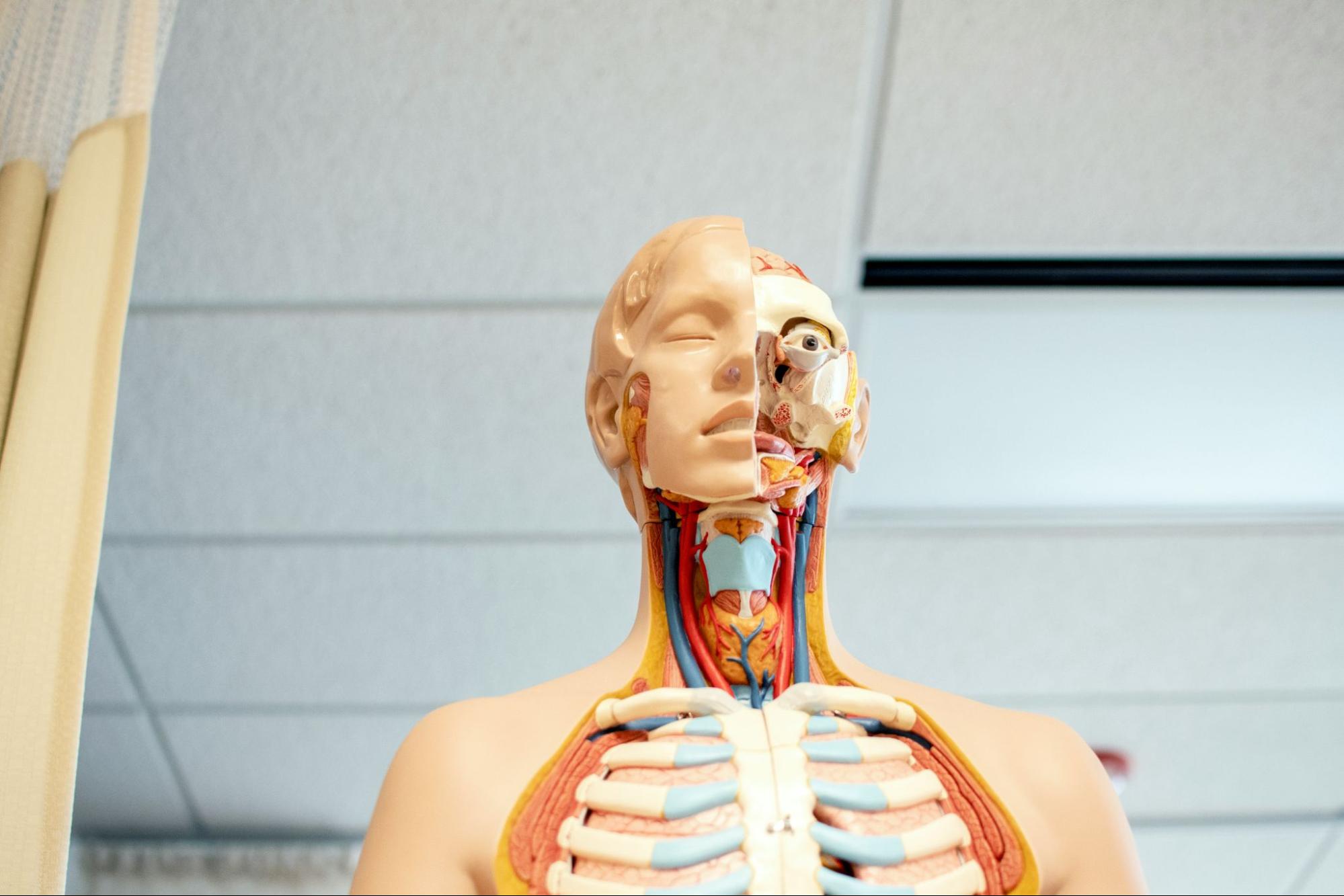Cardiologists are doctors who help patients maintain a healthy heart. Specializing in cardiology allows doctors to see patients directly to treat the cardiovascular system. This article will provide information on medical careers focused on cardiology, its functions, and all the education and certifications required to become a cardiologist.
A cardiologist is a specialized doctor who has additional training to diagnose, prevent, and treat all heart, cardiovascular, and circulatory pathologies. Some of their diagnosis include:
- Heart Attacks
- Heart failure
- Arrhythmia
- High Blood Pressure
- Heart Valve Disease
In addition to conducting interviews and assessing patients, the job responsibilities and requirements of a cardiologist include but are not limited to:
Conduct Early Detection Screenings
Cardiologist take a more aggressive approach with screenings by assessing and evaluating a patients’ risks – factoring in diabetes, high blood pressure, and high cholesterol.
Diagnose and Treat Disorders and Diseases of the Cardiovascular System
Cardiologists diagnose disorders and diseases with examinations, blood tests, or they use a host of other methods to detect problems with a patient’s heart.
Prescribe Medicine and Coordinate Referrals When Necessary
A cardiologist must use the information he has to coordinate care for their patient with other doctors whose treatment the patient needs. That includes contacting other doctors or writing a referral. They must also pay attention to any medications that their patient is on before writing prescriptions.
Develop Ongoing Treatment and Disease Management Plans
Based on the test results or if a patient has had a heart attack or stroke, a cardiologist will have the best treatment and management plan.
Perform Patient Exams and Order or Conduct Diagnostic Exams
If a patient has cardiovascular-related problems, it is imperative that they adhere to a treatment plan, keep scheduled appointments, and undergo continued diagnostic exams to ensure that their condition doesn’t progress in the wrong direction.
Cardiologists Maintain Accurate Patient Records and Office Charts
Regardless of whether a cardiologist is working in his practice or a large hospital, keeping accurate records is vital for the patient and other doctors who treat the patient.
Communicate in a Language That Patients Understand
A cardiologist must be able to communicate the status and treatment plan to the patient effectively. That means speaking words that the patient understands and breaking down every part of that plan to understand.
Communicate with Physicians, Staff, and Office or Hospital Administration
Cardiologists must be able to effectively communicate with other staff regarding the patient’s treatment. They often have to multitask and give instructions on the run.
Types of Cardiologists
With the United States having over 80 million people who suffer from complex heart issues, there is a great need for these specialists. Within the discipline, there are several different types of cardiologists. Some of those subspecialties are:
Clinical ardiologists are doctors who diagnose, confirm and manage heart disease. If you develop an abnormal heart rhythm or angina or have had a heart attack, a clinical cardiologist is necessary for your care. Clinical cardiologists also coordinate patients care with physicians and surgeons.
Interventional cardiologists are trained to “intervene” with additional minimally invasive procedures to treat coronary artery disease, valve disease, peripheral artery disease, and carotid artery disease. They specialize in invasive but non-surgical procedures for cardiac patients.
An electrophysiologist or EP is a specialist primarily concerned with electrical activities in the heart. They perform catheter ablations and implanted electrical devices like pacemakers to develop fast or slow irregular heart rhythms.
Heart failure specialists have expertise in managing symptoms and delaying the progression of a patient’s heart failure. They monitor the severity and counsel patients on treatment.
Cardiac imaging specialists are doctors who use advanced imaging machines to diagnose heart disease. The test includes a stress test with imaging, echocardiography, and cardiac MRI and CT scans.
Congenital heart specialists detect and treat abnormalities that occur in birth called congenital heart problems. These problems are detected at birth, early childhood, or late adulthood and are an ovale or hole in their hearts.
Cardio-oncologists are cardiologists who treat cardiac patients with cancer. Cardio-oncologists are needed because some chemotherapy agents and certain forms of radiation therapy are toxic to the heart. Cardio-oncologists do what they can to help minimize more damage to the heart as they get cancer treatment.
Preventative cardiologists treat patients with a high risk of cardiac failure or have had a heart attack or stroke at a young age. They evaluate a patient’s risk and develop plans.
Cardiac rehabilitation specialists are cardiologists who design and monitor exercise and nutritional programs for the patient to have a robust and healthy heart.
Cardiac surgeons perform heart surgeries such as bypass grafting, surgery on the aorta, or a valve replacement or repair that cannot occur through a catheter.
A pediatric cardiologist is a cardiologist for a pediatric patient. Pediatric cardiologist patients range from a fetus or infant to early adulthood. Pediatric cardiologists deal with heart issues that are hereditary or acquired.
Cardiothoracic surgeons are specialist cardiologists trained to perform surgery on the heart, lungs, and thorax. They fix or repair damaged or faulty heart valves and aneurysms in the chest.
Education and Training to Become a Cardiologist
While there can be more specialized cardiology areas such as adult congenital heart disease, sports, preventive, and women’s and obstetric cardiology, those listed above are the top positions covering the vast array of cardiac illnesses and diseases. There is a roadmap for how to become a cardiologist and the nine steps and requirements are summarized below.
- Earn a bachelor’s degree.
- Take the Medical College Admissions Test (MCAT)
- Attend medical school.
- Take the United States Medical Licensing Exams (USMLE).
- Complete a residency program.
- Get board-certified in cardiology specialty.
- Complete a fellowship program.
- Search for available jobs.
- Create a resume and Curriculum Vitae.
Earn a Bachelor's Degree
Completing a bachelor’s degree can take on many looks that have a lot to do with whether a student knows that he wants to be a doctor before earning a bachelor’s degree. If the student knows that they are going into medicine, a pre-med program is an excellent undergrad degree. If a student isn’t sure and weighing options, a Bachelor of Science degree in Biology is helpful (but not the best degree for all pre-meds). That course load will include classes like chemistry, biological studies, physics, and human genetics.
Take the Medical College Admissions Test (MCAT)
The MCAT is a standardized test given by the Association of American Medical Colleges. Analyzed by medical school admissions consulting staff along with staff and documents to determine a student’s eligibility to certain schools. Six tips for preparing for the MCAT are:
- Create a Timeline for Studying and Don’t Procrastinate
- Use study methods that have been successful for you in the past
- Take practice tests often to get a handle on the timing of the test
- Know your weak spots an work to strengthen them
- Set goals for yourself
- Aim for an excellent grade on your first test
Attend Medical School
There is value in talking to medical school admissions consulting services about the schools you are interested in before applying. Admission is highly competitive.
Up to this point, you have already spent a lot of time in the classroom, perseverance in undergraduate studies, and a good score on the MCAT have you at an accredited medical school. You will spend more time in school and doing laboratory work during your first two years in medical school. The latter two years will be primarily spent in the hospital or clinic doing clinical rotations. The second half of medical school is when you will develop your love for or start making decisions on a specialty.
Take the United States Medical Licensing Exams (USMLE)
The USMLE is a multi-day 3-step test that measures students’ ability to apply what they learned, concepts, and patient-centered skills while giving safe and effective care. Passing the tests makes them eligible to apply for an unrestricted medical license in the United States.
Complete a Residency Program
As a postgraduate, almost all new doctors enter a residency program. There they get to practice and get further training. Residency can go from two years to seven years, depending on the specialty. For cardiologists, there are three years of internal medicine residency.
Get Board-Certified in Cardiologist Specialty
After completing the residency, you will take a 10-hour exam offered by the American Board of Internal Medicine.
Complete a Fellowship Program
Fellowships last three years once residency is complete. Then the physician takes the Cardiovascular Disease Certification Exam that the American Board of Internal Medicine gives. The test is about 14 hours, and passing means the physician is board certified in cardiology.
Search for Available Jobs
As with finding a job of any other type, employment agencies are effective places to look for work. There are specialized boards like Doctors Choice and Practice Match. Also, networking, job boards, referrals, and word of mouth work to help you land the job of your dreams.
Creating a Resume and Curriculum Vitae
Your resume or Curriculum Vitae (CV) is a comprehensive list of education and work experience. The CV also includes honors, awards, publications, and other achievements.
There are a few other certifications/credentials that cardiologist can get, including:
- Basic Cardiology Certification
- Invasive and Transplant Cardiology Certifications
- Pacemaker Implantation Specialist Certification
- Nuclear Cardiology Certification
Talents and Skills Necessary to Become a Cardiologist
No that you have the steps on how to become a cardiologist, it is important to understand that there are specific talents and skills that you should possess. Some of those skills are:
Ability to Perform Very Complex Surgical Techniques
Cardiologists must have a range of movement involving their bodies, especially the hands since mistakes can be fatal. To increase agility, they should work out their hands, repeatedly stretching their thumbs, opening and closing motions of the entire hand and strength-building exercises like squeezing a ball. They must also practice hand-eye coordination since their work in small areas with extremely sharp tools and equipment.
Good Communication Skills
Having good communication skills is essential for you to have with patients and staff. Their terminology is complex, yet they must give detailed explanations for why things are done. There are several benefits to a cardiologist having good communication skills. Some of those are:
- Good communication builds trust between the doctor and patient.
- Good communication improves patient satisfaction and understanding of their ailments.
- Good communication increases the patients’ compliance with advice.
Attention to Detail
Attention to detail ensures the best health for your patients. As a cardiologist, your work is detailed and precise in the office and operating room. They must pay attention to all details and be able to spot and treat problems quickly and efficiently.
Organizational Skills
As a doctor dealing with complex information, confidential data, and medications, a cardiologist must have concise and well-organized records to manage different patients. Good organizational skills will save a doctor from misdiagnosis or missing important information and clues about treatment and care.
Stamina
Cardiac surgery can take many hours. Therefore, stamina to handle long days on the surgical floor in a hospital ward is imperative.
Patience
Patience is a required skill for cardiologists since patients’ problems cannot usually get resolved overnight. A care plan for some take time to get used to, and patience will save the doctor a lot of frustration
Compassion
Compassion is critical for any health care provider but especially a cardiologist. Understanding that many patients are in life-threatening circumstances makes having a heart during this time even more essential.
Confidence
Knowledge-based confidence is noticeable, and patients want to know that their doctor knows what he is doing with their treatment. Although there is a fine line, confidence does not include cockiness or arrogance. Instead, knowing the information to substantiate your treatment plan for the patient conveys confidence.
Cardiologists Job Growth Trends and Salaries
As an in-demand career, cardiologists typically work in both doctor offices and in hospitals. In offices, they see patients who are referred by other doctors for either maintenance of heart related issues or those suspected of having heart related issues. In a hospital, cardiologists are the first line of care for those coming in emergency cases or already in active heart attack or stroke mode.
A cardiologist career has a better-than-average outlook. It is expected to grow by 13 percent until 2026. The drivers of growth in this field are the population and the rise in aging. Technological advancements also make it easier for people to get non-invasive and invasive cardiology treatments and services.
Salary ranges vary based on the state where you practice and experience but average salaries range is:
| Years of Experience | Expected Salary Range |
|---|---|
| 1-2 Years | $368,500 to $410,200 |
| 3-4 Years | $371,700 to $413,400 |
| 5-6 Years | $373,900 to $415,500 |
| 7-9 Years | $380,300 to $420,900 |
| 10-14 Years | $393,100 to $439,500 |
| 15-19 Years | $407,050 to $459,700 |
| 20 or More Years | $413,400 to $467,300 |
What You Will Love About Being a Cardiologist
There are no two days exactly the same as a cardiologist. In addition to the enjoyable salary, you will prevent or treat life-threatening arrhythmias that could have caused a sudden and unexpected death to a patient. You will use tools to prevent a person’s loved one from having a heart attack that could have forever changed their life. You will look into someone’s heart and design a tailor therapy which adds additional years to their life. Your research can lead to cultured clinical trials that are recommended and used worldwide.
What Patients Look for When Choosing a Cardiologist
As stated above, some patients don’t get a choice in selecting a cardiologist because they are rushed to the hospital in an emergency situation. However, now that you know how to become a cardiologist, consider what patients who have the opportunity to look at when making the personal decision and selecting the right doctor for themselves.
- Patients research a doctor’s credentials
- Patients use referrals from their primary care doctor
- Patients consider the cardiologists experience
- Patients examine the doctors communication style
- Patients research the hospital or doctors office reputation
- Patients read other patient reviews
- Patients figure out what office/care their insurance company will cover
International Medical Aid
Real-World Clinical Experience Abroad – IMA Global Healthcare Internships
International Medical Aid (IMA) is dedicated to providing critical healthcare assistance in regions where resources are limited. Our Global Healthcare Internships give you the opportunity to gain direct patient care experience in Africa, South America, and the Caribbean. These internships allow you to see how dedicated healthcare professionals deliver care under challenging conditions, enriching your understanding of medicine in ways that classroom learning cannot match.
Hands-On Learning in Resource-Limited Settings
In our internships, you’ll work alongside experienced clinicians in real hospital and community settings. Whether you’re shadowing physicians, physician assistants, or other healthcare experts, you’ll be exposed to everyday patient care in environments where every resource counts. This practical experience helps you develop vital clinical skills such as patient interviewing, taking vital signs, and understanding diagnostic processes—all of which strengthen your future medical school application.
Cultural Immersion and Global Health Insights
Working abroad with IMA means more than just clinical exposure. You’ll immerse yourself in diverse cultures and learn how local healthcare systems operate. This experience deepens your cultural competence and gives you a broader perspective on global health challenges. Understanding how different communities manage health care despite limited resources provides you with insights that set your application apart from others.
Comprehensive Support and Structured Training
IMA ensures that your internship experience is both safe and rewarding. Before you leave, you receive an extensive pre-departure orientation that covers local cultural norms, safety protocols, and clinical expectations. Once on the ground, you’ll have 24/7 support from local coordinators and U.S.-based staff, secure accommodations, private transportation, and comprehensive travel and health insurance. This robust support system lets you focus entirely on gaining valuable clinical insights without distraction.
Building a Professional Network for the Future
Our internships are designed to help you build lasting connections with experienced healthcare professionals from around the world. Through hands-on learning and guided mentorship, you’ll form relationships that can provide strong letters of recommendation and open doors to future research or job opportunities. This international network not only enriches your experience but also gives you a competitive edge in your future applications.
Enhance Your Application with Global Experience
The direct patient care hours and diverse clinical experiences you gain through IMA’s Global Healthcare Internships are key components of a standout medical school application. These experiences demonstrate your practical skills, adaptability, and commitment to working in challenging environments. They offer a unique narrative that highlights your readiness to excel in both clinical and academic settings.
For more details on how our global medical internship programs work, including safety measures, program structure, and available opportunities across Africa, South America, and the Caribbean, visit our Global Healthcare Internships page.
Embrace this opportunity to see medicine in action, build critical clinical skills, and gain a unique global perspective that will set you apart on your journey to a successful career in healthcare.





